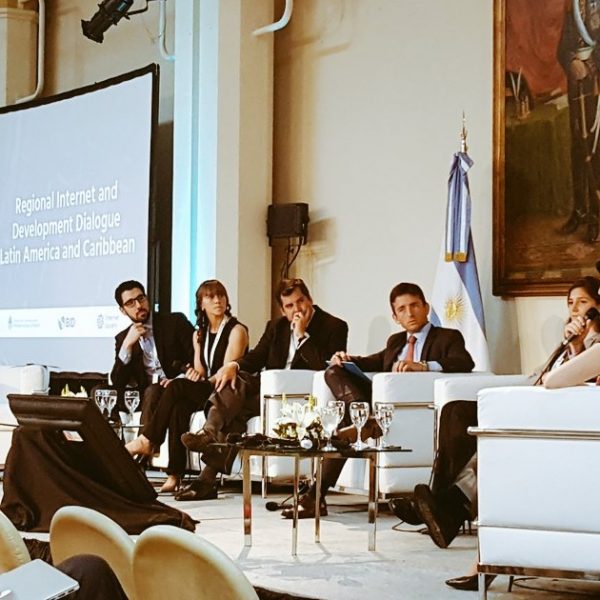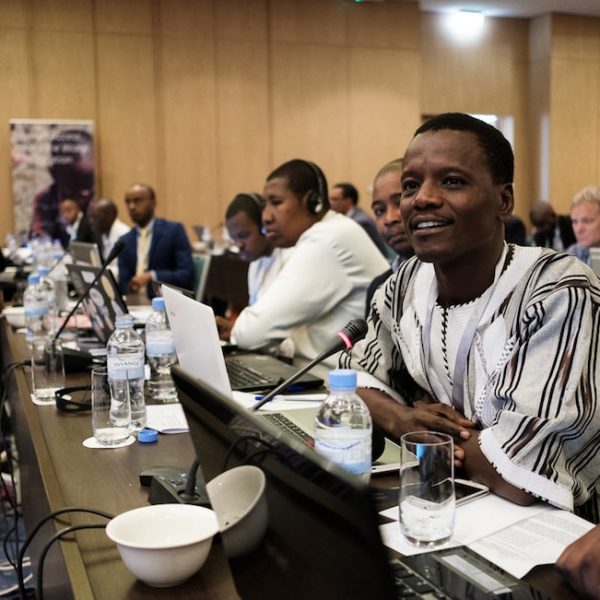About Regional Development Dialogues
This conference is part of a global series of Internet development conferences organized by the Internet Society with the aim of furthering the United Nations Sustainable Development Goals (SDG) that aim at tackling the world’s main development challenges by 2030. Previous Regional Internet Development Dialogues have been held in Asia Pacific, Latin America & Caribbean and Africa.
Format & Audience
This event will gather participants from government, local authorities, business, and civil society to discuss the development of the Internet and its relation to economic growth, digital economy and social inclusion with a focus on European regions and local communities. The event will be divided into four thematic sessions – jobs, innovation, remote access and skills. The objective is to highlight success stories from across Europe and to encourage the European regions and communities to make them most out of the Internet opportunity.
Setting the scene
The Internet is transforming Europe’s rich cities. The metropolises benefit from high speed connections and are the site of most start-ups and new tech jobs. But what are the consequences of this transformation? And what will happen to less populated regions and disadvantaged urban fringes? These will be the guiding questions for this day-long event organized by the Internet Society, CEPS, and the Committee of the Regions.
Leading policymakers and industry representatives will be on hand to present research and recommendations, with CEPS presenting a new paper on “The Internet and Jobs – A Giant Opportunity” analysing the current trends in Europe. We will debate whether the Internet is killing jobs – or whether it could create new long distance positions. Looking at questions of access, we will consider the progress towards extending fast-speed broadband right across Europe, and we will present success stories in regional innovation across Europe.
Our four panels will tackle the principal effects of the digital revolution, addressing jobs, innovation, access, and education and trust.
Session I: The Internet as a driver of economic growth
Panel 1: Employment in the Internet economy
The Internet is a motor for economic growth but can also be a cause for concern. Big data, cloud services, and the Internet of things all provide opportunities to European regions and their citizens to participate in a data economy led by new innovative companies. However the impact of the Internet on the job market presents challenges with ‘Uberisation’ threatening traditional jobs and changing the nature of employment. Meanwhile automation is also replacing current jobs.
European regions must adapt to the changing nature, and sometimes location, of employment, and create enabling conditions to generate and attract new types of jobs. How can they ensure that their inhabitants are ready for the challenge?
Panel 2: Leveraging the new Internet platform for innovation
With a few clicks of the keyboard, the Internet allows anybody, anywhere in the world, to connect to each other – and to launch a new business. Europe is home to more apps developers than any other region in the globe, and these developers can be located anywhere, even in the most far-flung of regions.
Independent developers, including startups and hobbyists are driving much of this entrepreneurial activity. EU developers are forecast to generate EUR63 billion in revenue next year and employ 2.8 million staff.
What are the inputs, in terms of support, financing and infrastructure that can promote this sort of innovation? And are there other concerns we need to take into account as we charge ahead with the digital revolution.
Session II: Developing an inclusive and secure digital economy for all
Panel 3: Connecting Europe’s far-flung regions
The opportunities of the digital era can only be fully actualized if all European citizens have access to the Internet. However many rural areas lack the basic infrastructure to provide this access. While our largest cities begin to experiment with much hyped 5G mobile technology, 7.4% of rural EU households are not covered by any broadband technology, and less than 40% have access to next generation services.
There is clearly an investment shortfall in Internet technologies that persists in these areas, but what can governments and regions do to correct for this – how can they ensure that the new digital opportunities are extended to all of their citizens?
Panel 4: Education and trust in the digital economy
High profile hacks and leaks risk undermining public trust and willingness to use Internet technologies and services – from e-banking to online shopping. These hacks have directly or indirectly impacted many European cities and regions.
There is increasing awareness that cybersecurity skills cannot be confined to a narrow band of IT professionals but need to become part of every Internet user’s skillset. Awareness of online risks and how to counteract them will need to be spread to local governments, businesses, hospitals and schools – in the digital age cybersecurity is a collective responsibility.
How can different stakeholders ensure that local organisations and citizens are equipped to work and interact comfortably and fluently in a digital environment? How do cybersecurity skills fit into the larger digital skills agenda and who should take on the upskilling effort?
For more information, please contact the Internet Society European Regional Bureau at riddeurope@isoc.org.



